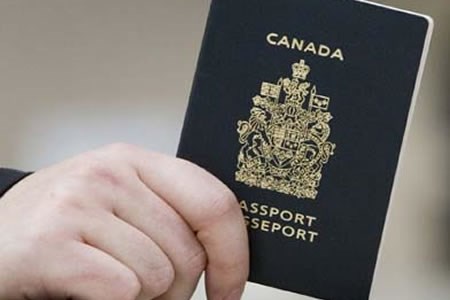When crossing the American border, it’s extremely important for business people to tell officials the truth about why they’re visiting the country.
Otherwise, they could end up being banned from the United States for a long time, according to Jean-Phillipe Brunet, a partner at the Montreal law firm Ogilvy Renealt LLP, who specializes in business immigration.
By law, foreign nationals aren’t supposed to be in the United States doing work that could be done by an American citizen. In many situations, business people may require a work permit for their trip, says Brunet.
The problem comes if they try to get around the red tape by pretending they are going to the United States on vacation instead of on business, he says.
"I’ve had a VP of marketing, an extremely intelligent individual, who thought that he’d play the system a little bit. He got barred from the United States for five years," Brunet says.
"He has a 12-year-old son. He can’t go and see his own son’s peewee hockey game in northern Vermont. It’s pretty horrible."
If business people are simply visiting the United States to "wine and dine” clients or make sales, that usually isn’t a problem, he says.
Brunet advises business people that they may have their belongings, and even the contents of their laptop computers searched by United States border officials. He encourages his clients to think twice about bringing laptops to the country because there may be confidential information stored on the hard drive, or even information that could result in criminal charges.
Having a valid Canadian passport is also quickly becoming a necessity when traveling to the United States, no matter the reason for the trip, says Brunet. The terrorist attacks in 2001 have prompted the United States government to tighten up border security, he says.
As of January 23, 2007, Canadian citizens entering the United States by air must present a valid Canadian passport or a NEXUS card which expedites border clearance for low-risk, pre-approved travelers.
As of January 31, 2008, Canadian citizens entering the United States by land or sea must present any one of the following: a combination of a government-issued photo ID and proof of citizenship, a valid Canadian passport, a NEXUS card, a Free and Secure Trade (FAST) card (which expedites border clearance for workers such as importers), an enhanced driver’s licence (in provinces where they are available) or a certificate of Indian Status card.
Next year, on June 1, 2009, Canadian citizens entering the United States by land or sea must present either a valid Canadian passport, a NEXUS card, a FAST card or an enhanced driver’s license.
Passports are valid for five years, so it’s important to check that they haven’t expired, says Brunet. You also need to have at least one empty page on the passport and ensure it hasn’t become ripped or damaged, he says.
Although it’s become harder for Canadians to get into the United States in recent years, Brunet says we should count ourselves lucky that we don’t need to obtain a Visa to get into the country.
Each country has various rules about the documents needed by Canadian citizens before they cross the border, says Brunet. He advises business travelers to contact the Canadian embassy of that country or the Canadian Department of Foreign Affairs and International Trade to find out which documents are needed in advance of their trip.
A list of travel advisories, which list dangers in specific countries, are also available on the Canadian Department of Foreign Affairs and International Trade’s website, www.voyage.gc.ca.
The president of Sudbury-based mining supplier Fuller Industrial, Jeff Fuller, frequently travels to the United States and other destinations to make business deals.
"I haven’t had very much trouble travelling to the States. The most problems I’ve had anywhere is in Sudbury and in Toronto. They grill me like I’m a terrorist," he says.
"But I was due to fly out of Newark airport (in New Jersey) on an international flight, and I get stuck in a traffic jam. I thought I was going to miss my flight. I dropped off my rental car and I was in the departure lounge within half an hour. I went through customs and security and everything."
Fuller says he avoids hassles at the border by always having a valid passport, an exact itinerary of what he’s doing and a list of the hotels where he’s staying.
"You have to remember though that I’m not bringing in any materials. I’m just travelling with my suitcase. I’m not doing any work in the States. I’m just basically doing sales calls. They have no problem with that."




